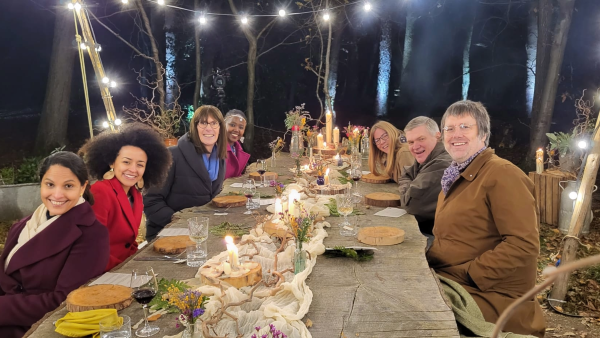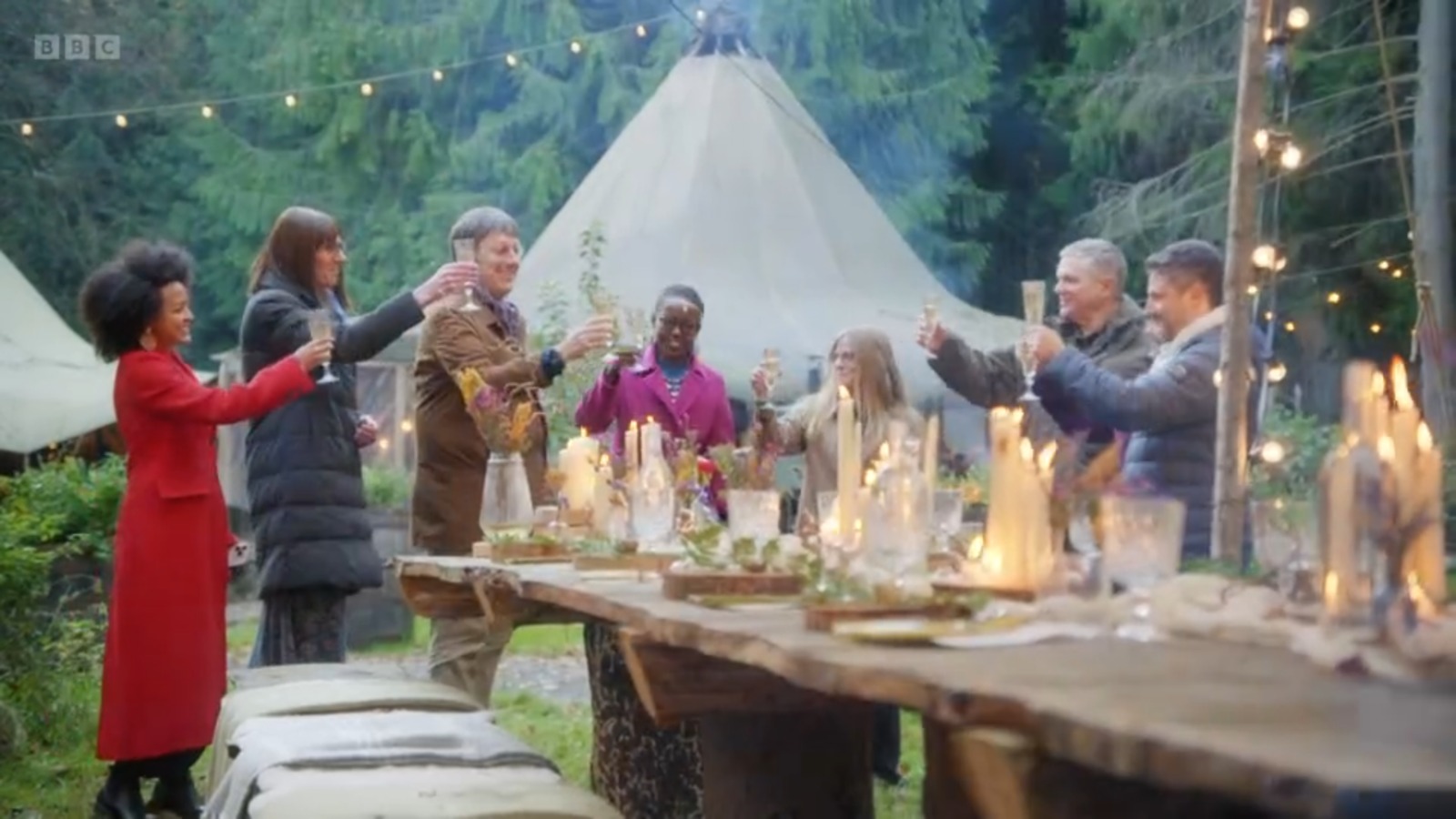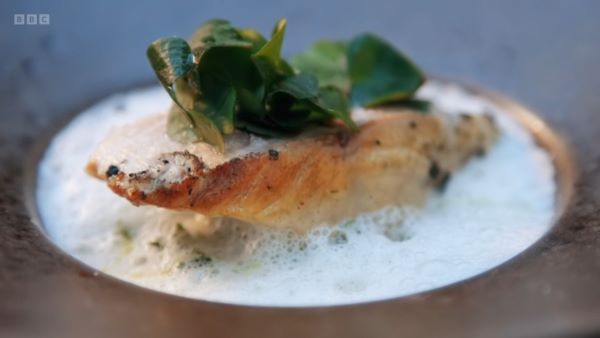
Members of the World Land Trust (WLT) and Global Greengrants Fund teams, together with bushcraft expert Ray Mears, at Nomadic in Buckinghamshire. Credit: BBC MasterChef
Yesterday evening, we were delighted to appear on Episode 20 of MasterChef. This episode was centred around the great outdoors, taking place at Nomadic; a wilderness dining experience in Buckinghamshire. Surrounded by ancient oak trees, we were fortunate enough to tuck into some delicious cuisine, featuring responsibly sourced and locally foraged ingredients. We were also joined by Global Greengrants Fund and bushcraft expert Ray Mears for this episode celebrating natural cooking.
The opportunity to appear on such a well-known widely publicised TV show was the chance to spread our critical message about saving land and saving species to a much broader audience. The urgency of the nature and climate crises compels us in our work supporting local partners around the world to protect and restore land, for both wildlife and people. We rely on the generous donations of our supporters and to scale up our impact we have to introduce new supporters to WLT. As part of increasing our supporter base, publicity plays a key role, and with such a broad audience MasterChef is an ideal opportunity to reach new supporters.

With a huge audience base, MasterChef was an ideal opportunity to reach new supporters. Credit: BBC MasterChef.
WLT has a plant-based and local catering policy to minimise our impact for our own events, and we spoke closely with the production team before deciding to get involved. Specifically, we asked whether the meals could be vegetarian in line with this policy. This was not possible due to the format of the episode, but the MasterChef team provided the details of the menu and reassurances that all of the meal’s ingredients were responsibly sourced. MasterChef is also an Albert-accredited production, which is an accreditation for companies in the TV and film industry that actively reduce waste and their carbon footprint. Specifically, they closely adhere to the Good Fish Guide published by the Marine Conservation Society and always opt for line-caught fish. For example, squid is now considered unsustainable and is no longer used on MasterChef.
The meal we consumed, for example, contained Arctic Char which is rated as Best Choice by the Marine Conservation Society’s Good Fish Guide. These are generally farmed on land, being raised in tanks and raceways, unlike salmon which are generally raised in open cages in coastal waters. The use of land-based production systems addresses many issues of environmental concern associated with farmed fish production such as organic and chemical waste deposition, escapes and habitat impacts. Arctic Char also have a lower requirement for fish in its diet compared to other salmonid species. Similarly, the meal contained Langoustines which are rated as Best Choice, being caught in pots which minimises environmental disturbance and bycatch. Collectively, these factors convinced us that getting involved would have considerably more benefit than not participating.

One of the dishes served featured Arctic Char, rated as Best Choice for sustainability by the Marine Conservation Society. Credit: BBC MasterChef.
At WLT, we are motivated to make a real and tangible difference to the protection of the natural world. This decade is a critical time to take action in the face of the nature and climate crises. We recognise the impact that increasing consumption has on our natural resources, and the further impact on ecosystems and wildlife globally. We also recognise that avoiding the consumption of meat and fish products is one simple way to reduce our impact on the environment.
However, WLT are not an advocacy-based organisation, and whilst we are happy to point out the environmental benefits of a meat-free diet, we recognise the importance of choice and it is not our role to insist or demand that others follow a meat-free diet. We will never tell people what they should or shouldn’t eat but we do encourage everyone to think about the sustainability of the food they consume and to minimise the consumption of meat, dairy or fish products and to source food as locally (and seasonally) as possible.
You can watch the MasterChef episode on BBC iPlayer here.